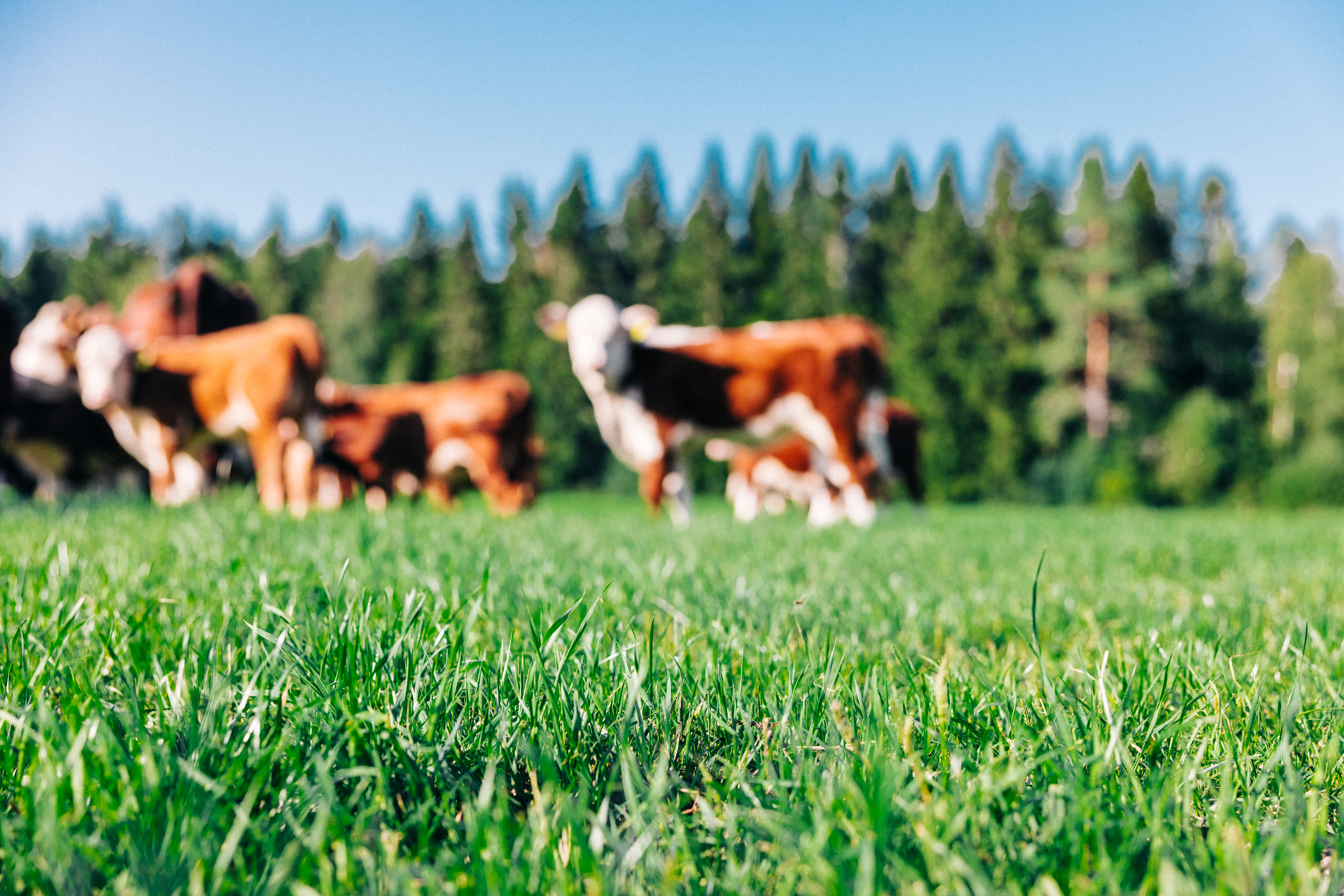Sustainability is the recipe for quality meat
At Atria, sustainability is more than a part of everyday work—it's rooted in Finnish nature and helps make healthy, delicious, and antibiotic-free meat. Discover what one of the world's purest and animal-friendly environments has to offer to your plate
Finland, a country far north, is known for its crystal clear lakes, breathtakingly beautiful forests, and midnight sun. According to the Environmental Performance Index, Finland ranks among the world's top countries in environmental health, providing unique conditions for sustainable livestock farming. The air and groundwaters are clean. As it rains more than it evaporates, the water consumption doesn't burden the environment. For Atria, Finnish nature is where the story begins.
"Our sustainable production chain starts from the close cooperation with the local feed and livestock farms. What the farms have in common is responsible operations in close operation with Atria," says Merja Leino, Executive Vice President of Sustainability at Atria Plc.
Making pure and sustainable meat
When animals are happy and well-cared for, it ensures the meat is juicy and tender. Excessive stress, conversely, can result in harsh and dry meat. At every production stage, Atria considers animals' unique needs. In Finland, all meat sold is antibiotic-free, but for Atria, this means more—no antibiotics are used at any stage of animal rearing.
"Our advanced feed factory ensures precise nutrition, balancing vitamins, micronutrients, and minerals. There is no soy in cattle feed and only a little in chicken feed, our pigs are raised without antibiotics, and we've increased the share of domestic protein sources. Concurrently, our feed production supports the local circular economy by utilizing food industry by-products like potato and dairy residues. Our producers prioritize biosecurity and hygiene to prevent diseases and maintain animal health," Leino adds.
Be it pork loin, roast beef or chicken breast, Atria's meat tastes great for a reason:
- Atria works with nearly 3,500 beef contract producers across Finland. Atria doesn't export or import calves, and bull calves are not castrated. 80% of the cattle graze on fresh grass during summer, with few animals per arable ha, and a ratio based on grass promotes animal welfare and biodiversity. In addition, Atria leverages NASEVA, a Finnish voluntary cattle production system, to monitor rearing conditions, medication, and health. At the same time, its veterinarians provide inspections and guidance to support farms and ensure quality improvements.
- Concurrently, Finnish pigs thrive in superior conditions compared to most countries. With 30% more space on Atria farms, the pigs have intact tails—a key indicator of well-being—and adherence to the EU's 18-year ban on tail docking, which only Finland and Sweden follow. Pig feed in Finland primarily consists of locally produced grain, supplemented with Finnish liquid barley protein, a by-product of ethanol and starch production at Anora's Koskenkorva plant. Over half of Atria's pigs are fed this sustainable protein source.
- Finnish chickens are raised without antibiotics or hormones, ensuring their well-being and producing safe, high-quality meat. They have ample space to eat and drink freely and are fed a balanced diet of Finnish wholegrain wheat, locally produced oats, peas, and broad beans. Additionally, Atria's poultry products are free of salmonella.
"Healthy animals don't need medication," emphasizes Leino.
Transparent and efficient meat production
Atria has conducted a thorough review of green claims and engaged in sparring to ensure accuracy. For example, there is farm-specific traceability on consumer packaging. Consumers can see where their chicken was raised by linking farm information to product details.
"Conscious consumers are particularly interested in our sustainability work, including efforts to reduce emissions and our commitment to the Paris Agreement. Thus, we must ensure that all information shared with the customers is thoroughly traceable, verified and reliable," says Leino.
It is time to challenge opinions on whether meat is still a sustainable choice. Regional differences and a diverse food system are vital for sustainability. Also, animal protein is essential and hard to replace, while meat emissions in Finland are relatively low. Innovations and Nordic practices can further reduce emissions and help address global hunger.
"Understanding the carbon footprint of meat and its key components is essential. While livestock farming has challenges, emissions from meat are a small portion of global totals, especially in Finland. Another key aspect for the northern countries is cattle production, particularly beef farming, which provides security for national preparedness. Our harvests often make grain unsuitable for food production but perfectly suitable as feed. Livestock transforms this grain and feed into valuable meat", underlines Leino.
Towards the greener future with sustainable meat
In 2025, Atria's climate actions will continue and expand, focusing on reducing emissions across the entire production chain. Atria's emissions are mainly from raw materials, packaging, and services (96.5%, Scope 3), prompting sustainability efforts focused on collaboration with producers and emission reductions. Finnish meat production emits roughly half the global average, supported by tools like the Carbo® environmental calculator, which measures the carbon footprint of beef. Feed and manure are key contributors, as Atria emphasizes domestic protein sources and biogas projects to reduce slurry emissions. Additionally, methane reduction from cattle and proper manure management remain critical for Atria's sustainable practices.
Furthermore, Atria is improving energy efficiency and resource use in its factories, advancing renewable energy, developing recyclable packaging to enhance safety, reducing food waste, and promoting eco-friendly transportation with modern equipment and optimized logistics. Atria is also one of thirty large companies in Finland with approved ambitious climate targets bound to the 1.5 °C rate of warming. During 2020–2030, Atria's SBTi-approved targets are to reduce greenhouse gas emissions by 42% (Scopes 1 and 2) and 20% Scope 3 (per tonne of processed meat).
"Finland may be a small country, but we can make a big impact together. At Atria, we invite everyone to collaborate," Leino encourages.
